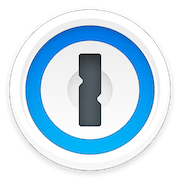Find the best encryption software for your needs with our comprehensive buyer's guide. Keep your data safe and secure with top-rated solutions.
The security of data is of utmost importance. Organizations of every size and industry need to safeguard their information from prying eyes, especially when it comes to sensitive data such as financial and proprietary information. That's where encryption software comes in. This is a powerful tool that allows organizations to securely store and transfer information, keeping it safe from hackers, cybercriminals, and other malicious actors. With a wide range of software options available on the market, it can be challenging to choose the right one for your organization. In this buyer's guide, we will explore everything you need to know to make a well-informed decision and protect your valuable data.
What is encryption software?
This is a powerful tool used to protect sensitive data. It works by converting plain text data into a coded format that is unreadable to anyone without the encryption key. In other words, it is a way to secure important information from unauthorized access or interception.
This solution is commonly used by a wide range of industries and businesses. It comes in different forms and is used to protect different types of information, including personal data, healthcare records, financial records, and intellectual property. Here are some of its common use cases:
- Secure communication: It is commonly used to secure communications such as emails, messaging apps, video conferencing, and Voice over Internet Protocol (VoIP) calls. This helps to protect the privacy and confidentiality of conversations.
- Data storage: Companies also use it to encrypt stored data on hard drives, cloud-based storage, and other data storage devices. This helps to protect sensitive or confidential data from unauthorized access.
- Digital transactions: The system is used to secure digital transactions such as online payments, e-commerce, online banking, and other financial transactions. This protects sensitive financial data and prevents fraud.
- Compliance regulations: There are certain industries, such as healthcare and finance, that are required by law to protect certain types of sensitive data. This tool is often used as a compliance measure to ensure that sensitive data is protected from unauthorized access.
Types of companies that use encryption technology vary widely. Almost any company that stores or transmits sensitive data can benefit from it. However, some of the most common industries that utilize it include:
- Healthcare: Hospitals, clinics, and other healthcare organizations store a significant amount of sensitive patient data that must be protected by such a tool.
- Finance: Banks, credit unions, and other financial institutions deal with sensitive financial data that must be protected from cyber attackers.
- Government: Government agencies and organizations deal with classified or sensitive information that must be secured from potential attackers using this application.
What benefits does an encryption system come with?
Data is one of the most important assets of any business and with the increasing amount of data being generated and shared across various networks, it becomes essential to protect this data from potential security breaches. An encryption program acts as a crucial tool for businesses to secure their data and mitigate potential security risks.
Here are some of its main benefits:
- Enhanced security: Encryption software ensures that sensitive data is encrypted and unreadable to unauthorized users. This helps in preventing cyber attacks and data breaches. Encryption technologies such as secure sockets layer (SSL) and transport layer security (TLS) hide up to 50% of cyberattacks, making inspection of encrypted traffic a non-negotiable feature.
- Regulatory compliance: In many industries, there are regulations and compliance requirements around data protection. An encryption system helps businesses adhere to these regulations and avoid penalties.
- Increased trust: Using encryption technology sends a message to customers that a business takes their data seriously and is committed to protecting their sensitive information. This enhances trust and improves the overall reputation of the business.
- Flexibility: This technologyoffers businesses the flexibility to secure data across various platforms and networks, including cloud-based storage and mobile devices.
- Cost-effective: Implementing encryption software can be more cost-effective in the long run compared to potential losses due to data breaches and security threats.
10 key features of encryption software
By encoding data an encryption platform allows data to be secured so that it cannot be understood by anyone who does not have the encryption key. There are many encryption packages available on the market, and each has its own set of features. In this section, we'll take a look at 10 of its common features that you should look for to make an excellent choice for your business.
1. Strong encryption algorithms:
The first and foremost feature to look for in encryption software is strong encryption algorithms that provide maximum security for your data. AES (Advanced Encryption Standard), Blowfish, and Twofish are some of the most widely used encryption algorithms.
2. Multiple encryption methods:
A solution that offers a variety of encryption methods provides flexibility and can address various data security requirements. You can choose from techniques such as symmetric encryption, asymmetric encryption, and hashing.
3. Cross-platform support:
One that works across multiple platforms is essential if your business uses different operating systems or devices connected to different networks. The app should be compatible with Windows, Mac, iOS, and Android.
4. User-friendly interface:
An encryption tool with a user-friendly interface can help you easily navigate the software's functionalities without requiring technical expertise.
5. Compression:
To help save storage space, reduce transfer time, and maintain the speed of data transfer you need an application that can compress the data before encryption can.
6. File and folder encryption:
Data encryption software that can selectively encrypt files and folders can help avoid storage of untrusted users' unwanted sensitive data.
7. Password strength assessment:
The best solution assesses password strength and instructs users to choose strong passwords to prevent unauthorized access.
8. Key management:
The software should manage keys securely to prevent unauthorized access to encryption keys.
9. Compatibility with cloud services:
The increasing amount of cloud-based data storage has resulted in the development of encryption technology that is compatible with cloud storage services from popular providers like Google Drive, Dropbox, and Amazon S3.
10. Ease of use:
A critical feature of any encryption system is ease of installation and usage. If it is too complex for the average user, it can quickly become more of a hassle than a useful tool. Look for one that is easy to install and use without the need for formal training.
Things to consider when adopting an encryption solution
Due to the growing number of cyber threats and whether you are looking to secure sensitive business data or your personal files, there are encryption software programs that can help protect your information from malicious hackers and cyber threats. Let us explore some of the key factors businesses should consider when purchasing such a tool.
- Security strength is the most critical factor that businesses should consider when purchasing an encryption software tool. The system should be able to provide robust security practices, which includes industry-standard encryption algorithms with sufficient key length, hash functions, and message authentication codes. Furthermore, it should have an up-to-date encryption design, which continually improves as new vulnerabilities emerge.
- Ease of use is another factor to consider. The solution should have a user-friendly interface that allows employees to encrypt and decrypt data quickly and efficiently. In addition, it should not require extensive technical knowledge or training to operate.
- The compatibility of the application with your existing business infrastructure is also essential. Some encryption systems may not support certain operating systems, applications, or devices used within a company. Therefore, businesses should ensure that the tool they purchase is compatible with their existing infrastructure.
- Cost is an essential factor in any business decision, and the same applies to purchasing this program. The cost of an encryption platform can vary significantly depending on its features and capabilities. As such, businesses should ensure that they choose a security solution that fits their budget and offers the functionalities that are essential to their operations.
The importance of encryption software for businesses cannot be overstated. A combination of various advanced features should be carefully weighed when deciding on purchase, in order to select an encryption software solution that provides robust data protection and meets their operational needs.
Industry trends for encryption software
In 2024 and beyond, encryption technology will continue to play a critical role in safeguarding sensitive files for businesses. As cybercrime becomes increasingly sophisticated, companies will need to keep up with the latest trends in encryption industry to ensure their information remains secure.
Trend #1
One trend that will gain momentum is cloud-based encryption. With remote work becoming the norm, cloud storage has become a popular way for companies to store and share data. Cloud-based encryption software like CertainSafe will become more prevalent, providing automated additional layers of security and secure file sharing options for businesses using cloud-based databases and applications.
Trend #2
Another trend will be the use of open source encryption software like VeraCrypt, which offers a top-of-the-line free encryption solution. It provides businesses with the flexibility to customize and modify their encryption tool to meet their unique security needs.
Trend #3
In addition, machine learning and artificial intelligence will play a role in the future of encryption. Encryption solutions with built-in machine learning will continuously learn and adapt to new threats, making it easier for businesses to keep their data secure.
Trend #4
Lastly, with the increasing regulations around data privacy, an encryption app that meets compliance requirements will be essential. This will lead to an increased demand for encryption technology that can prove that their encryption standards are up-to-date and effective.
Conclusion
In conclusion, selecting the right encryption package is crucial for safeguarding sensitive data. Whether you are an individual seeking to protect personal information or a business aiming to secure customer and operational data, this innovation provides an essential layer of security. By understanding your specific needs, evaluating key features, and staying informed about the latest security trends, you can make an informed decision that ensures your data remains confidential and secure. According to a recent survey, 53% of respondents said they were more concerned about online privacy now than a year ago. Businesses may wish to embrace robust encryption practices to maintain privacy but also to build trust with stakeholders, ultimately contributing to overall business success and peace of mind.








